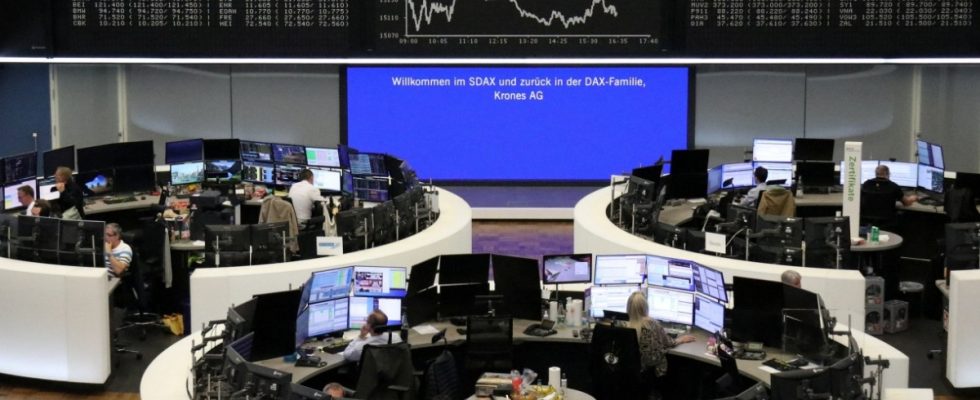The attack on Israel by the radical Islamic Palestinian group Hamas made investors on the stock markets nervous on Monday, but the reaction was initially muted. In Frankfurt, the German leading index Dax fell by 0.7 percent by the end of trading, while at the European level the Euro Stoxx 50 lost 0.8 percent. In New York, the leading index Dow Jones was only slightly in the red at mid-trade. “The world has the next war and the stock market has another factor of uncertainty,” said Jürgen Molnar, analyst at broker Robo-Markets. “The price losses on the stock market are still limited. However, due to more expensive oil and thus increasing concerns about inflation and pressure on the bond market, the stock market will also have to deal with the issue in the coming days.”
On the Tel Aviv stock exchange, the TA-35 index recovered somewhat from its losses after plunging seven percent on Sunday. Meanwhile, the Israeli shekel continued to weaken. The country’s central bank wants to tap its foreign currency reserves for the first time to stabilize the currency, which has come under pressure. Foreign currencies worth up to $30 billion could be sold on the open market, the monetary authorities announced on Monday. However, the stabilizing effect of the announced support purchases evaporated. In return, the dollar rose by up to 2.4 percent to 3.9316 shekels, the highest level in more than seven and a half years.
On the oil market, the North Sea crude oil grade Brent and the US grade WTI rose in price by more than five percent each to $89 and $87.25 per barrel (159 liters), respectively. This largely offset the heavy losses in connection with the meeting of the Opec+ oil cartel last Wednesday. Investors are still trying to assess what impact the fighting would have on global oil supplies, analysts said. The decisive factor is whether other countries in the important oil-producing region would be drawn into the conflict. In return, investors stocked up on investments that were considered “safe havens”: gold rose in price by 1.1 percent to $1,852 per troy ounce, the dollar was in demand, and the euro fell by half a percent to $1.0520. “If a war breaks out somewhere in the world, investors think it’s a good idea to have the US currency in their portfolio,” said Ulrich Leuchtmann, foreign exchange expert at Commerzbank.
European gas TTF rose in price by almost 15 percent to 43.95 euros per megawatt hour. On the one hand, the market referred to a gas pipeline between Finland and Estonia, which was closed at the weekend due to a drop in pressure. According to the Finnish operator, a leak is considered possible. Although the incident does not yet pose a threat to European gas supplies, it highlights the vulnerability of the supply network. On the other hand, market participants cited the attack on Israel by the Islamist Hamas as the reason for the price increases.
In view of speculation about a further escalation of the Middle East conflict, investors bought into arms stocks. The shares of Rheinmetall, BAE Systems and Thales climbed by up to six percent, and the shares of the military software specialist Hensoldt temporarily rose by 13 percent. On the other hand, airline papers flew out of the depots. Because of the fighting in Israel, numerous airlines are no longer flying to their destinations there. There is also a risk of an increase in fuel prices, which are a major cost factor.

